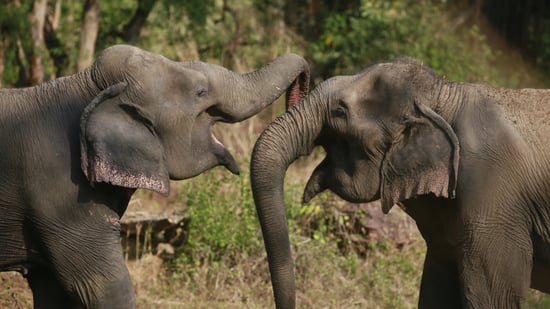World Orangutan Day
Animal awareness days
Held on August 19th, World Orangutan Day is the perfect time to learn more about these great apes, their lives in the wild, and the threats they face.

Animal Awareness Days
World Wildlife Day is on March 3rd and people around the world will be celebrating the natural world and its inhabitants.
Read on to find out more about the day, why it exists, and how you can take part in celebrating.
World Wildlife Day is a United Nations international day essential in bringing awareness to the wild animals and the natural habitat they live in. By educating more people on the needs of wildlife, we can take better care for the animals, both in the wild and those who are unfortunately in captivity.
Wild animals belong in the wild and deserve to live in their natural environment. World Wildlife Day is a reminder of that, and we believe that wild animals should have a right to a wild life.
World Wildlife Day is a day to celebrate all the natural biodiversity that creates the world around us. From the largest animal to the smallest plant, each plays their part and contributes to the health of our planet.
World Wildlife Day is celebrated annually on March 3rd.
The date of March 3rd was chosen as it is the date CITES was founded. CITES (the Convention on International Trade in Endangered Species of Wild Fauna and Flora) began in 1973, and this year will be the 50th year of the organisation operating.
Most captive animals have either been taken from their natural home in the wild, or bred in captivity, having never known real freedom. There are hundreds of thousands of animals currently being held in captivity, in unnatural environments, and forced to perform for tourists.
These animals range from many species, from tigers and elephants performing tricks to donkeys and camels being used as transportation. Venues can range from amusement parks to mobile zoos, and deceptive marketing can create the illusion of sustainability and ethical values. However, the reality is far from kind.
Harsh training methods are used to get animals to behave in certain ways. The animals are disciplined until the ‘correct’ behaviour is implemented.
However, by sharing information and raising awareness, more people are being made aware of the suffering captive animals endure for ticket sales. Together, we can end the commercial exploitation of wildlife.
Join our fight against the exploitation and commodification of wild animals.

When you make a donation, you’ll join a passionate group of supporters who are determined to change the world for animals. We're fighting animal cruelty wherever we find it — are you with us?
DonateThis World Wildlife Day, make sure you do your best to support wild animals and their natural environments.
Attending animal shows on holiday may seem supportive, but the reality doesn’t reveal the suffering they face. Harsh training methods, repetitive performances, and unnatural living environments keep thousands of animals in an endless cycle of suffering.
Animal awareness days
Held on August 19th, World Orangutan Day is the perfect time to learn more about these great apes, their lives in the wild, and the threats they face.
Animal Awareness Days
World Pangolin Day is observed on the third Saturday of February every year to celebrate pangolins and their contribution to the planet's ecosystem.
Animal Awareness Days
World Vegetarian Day is observed worldwide on October 1st, find out how you can raise awareness for animal welfare by promoting a meat-free lifestyle.
Blog
Is a tapir an anteater? Can a tapir swim? What is the tapir’s closest relative? Discover top tapir...
Blog
Meet the maned wolf - neither a wolf nor a fox, but a unique wild canid with long...
Blog
Explore the impact of factory farming on climate change and how plant-based or sustainable animal products support climate...
Blog
Discover the truth: Do fish have feelings? Explore insights and findings from World Animal Protection. Dive into the...